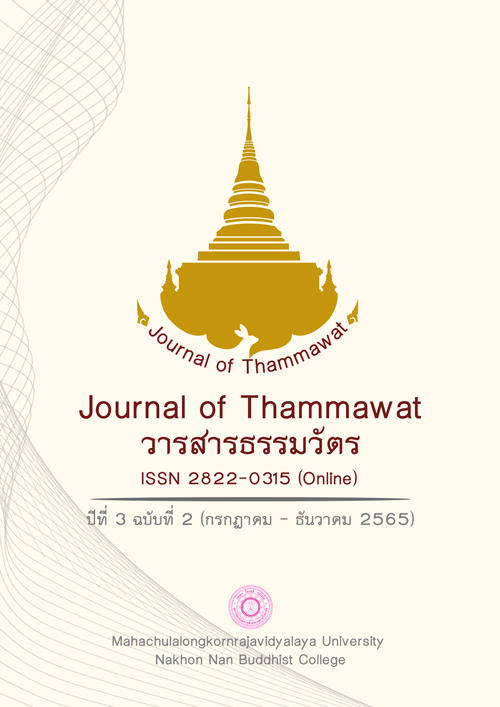S. W. MODEL: Participatory School Contextual Waste Management
Main Article Content
Abstract
S. W. MODEL: Participatory School Contextual Waste Management. It is an administrative operation, provides opportunities for teachers, students’ parents and students. Basic Education Committee, Advisory Board Education and Community Network take part in school management at every step to ensure efficiency by using the Deming Cycle PDCA quality circuit to control operations under another level in order to increase the efficiency of the personnel in the operation and solving problems that occur in various fields better. Consists of 4 steps. The results ware occurred with teachers, students, educational personnel, families and entrepreneurs within the school to have knowledge, understanding and participation about waste reduction, waste separation and recycling, resulting in the amount of different types of waste being more utilized, the amount of waste that is disposed is reduced, and there is a learning base to separating waste in schools and integrating them into the curriculum.
Article Details

This work is licensed under a Creative Commons Attribution-NonCommercial-NoDerivatives 4.0 International License.
References
จิรวรรณ คุ้มพร้อม สาลีพันธุ์. (2560). การพัฒนาการบริหารจัดการขยะที่เป็นส่วนหนึ่งของการศึกษาเชิงท่องเที่ยวอย่างยั่งยืน สำหรับโรงเรียนประถมศึกษาในอำเภอเกาะสมุย โดยใช้การสอนแบบทีม.วารสารวิชาการ บัณฑิตวิทยาลัยสวนดุสิต, 13(2), 15 – 27.
ทรงธิศักดิ์ทิพย์คา. (2555). การมีส่วนร่วมของประชาชนในการจัดการขยะ ตำบลบ้านสาง อำเภอเมือง จังหวัดพะเยา.(วิทยานิพนธ์รัฐประศาสนศาสตรมหาบัณฑิต). มหาวิทยาลัยพะเยา
ประสาร พรหมณา. (2563). การบริหารแบบมีส่วนร่วม. สืบค้นเมื่อ 24 มีนาคม 2563, จาก http://trang.nfe.go.th/ alltis16/ UserFiles/Pdf/wijaiman.pdf
เลิศชาย ปานมุข. (2563). การเพิ่มประสิทธิภาพในการปฏิบัติงานของบุคลากร โดยใช้รูปแบบการบริหารจัดการ LERTCHAI MODEL. สืบค้นเมื่อ 24 มีนาคม 2563, จาก http://www.lertchaimaster.com/doc/l ertchaimodel1.pdf.
วิโรจน์ สารรัตนะ. (2563). การบริหารการศึกษาในและสำหรับศตวรรษที่ 21. สืบค้นเมื่อ 24 มีนาคม 2563, จาก http://www.mbuisc.ac.th/phd/thesis/administration.pdf.
สุเทพ พงศ์ศรีวัฒน์ . (2563). คุณลักษณะภาวะผู้นำการเปลี่ยนแปลงในสถานศึกษา. สืบค้นเมื่อ 24 มีนาคม 2563, จาก แหล่งที่มา: https://www.gotoknow.org/posts/376184.
เสนาะ แก้วคง. (2560). การมีส่วนร่วมของประชาชนในการจัดการขยะมูลฝอยภาคครัวเรือนในเขตเทศบาลตำบลบางวัวคณารักษ์ อำเภอบางปะกง จังหวัดฉะเชิงเทรา. (วิทยานิพนธ์รัฐศาสตรมหาบัณฑิต). มหาวิทยาลัยบูรพา.
อาณัติ ต๊ะปินตา. (2553). ความรู้เบื้องต้นเกี่ยวกับการจัดการขยะมูลฝอย. กรุงเทพฯ: จุฬาลงกรณ์มหาวิทยาลัย.


